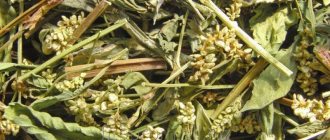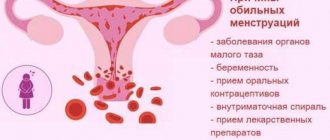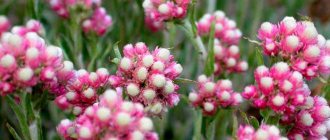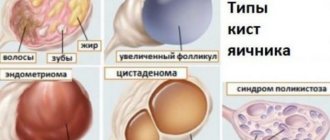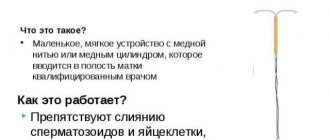Pepper water extract, doctor's reviews
All doctors are experts in our service. Doctors' documents have been verified.
Liquid water pepper extract
Liquid water pepper extract is a herbal preparation that contains alcohol and pepper grass extract.
The advantages include the long shelf life, effectiveness and price of the drug. Bioflavonoids, which are contained in the extract, very well reduce capillary permeability, normalize the structure of the vascular wall, have a hemostatic effect, anti-inflammatory and astringent effect.
The drug is used as an additional remedy to stop hemorrhoidal bleeding and bleeding from small vessels of the stomach. Not for use in children under 12 years of age. Side effects may include headache, vomiting, dizziness, itching and skin rashes.
Water Pepper Extract
Water pepper extract is a hemostatic agent of plant origin, a drug that has stood the test of time and is still indispensable today.
The hemostatic effect is due to a decrease in capillary permeability, an increase in blood coagulation and the contractile function of the myometrium.
In clinical practice, I prescribe this drug as part of complex therapy for heavy menstruation, to improve uterine contractility in the postoperative period. Water pepper extract may be recommended during the postpartum period. The drug is well tolerated, available, low price, and no adverse reactions were noted.
Contraindications to the use of water pepper extract are pregnancy, thromboembolism, allergic reaction to the components of the drug, age under 18 years, use for breastfeeding is possible after assessing the risk/benefit.
Tincture (extract) of water pepper
Tincture of water pepper is a hemostatic agent, reduces capillary permeability, increases blood clotting.
Indispensable for bleeding of various origins (usually uterine and nasal).
Often this remedy is prescribed by hematologists, since not everyone has an idea what kind of plant it is and what properties it has.
This remedy came into my practice as a doctor not so long ago. I note that women during periods of heavy and prolonged menstruation (exceeding 7 days) when using Water Pepper extract noted not only a decrease in the intensity of bleeding, but also a decrease in pain in the lower abdomen.
In general, this remedy has proven itself well in complex therapy. Despite its affordable price, it can compete with other herbal medicines, providing a hemostatic effect.
Strictly contraindicated for people with a tendency to form blood clots.
Plants contraindicated during pregnancy
Although herbal remedies are an excellent alternative to medications in some cases, they are still drugs and must be used with extreme caution as some herbs are very potent and may have adverse effects if consumed during pregnancy.
Many plants have multifaceted effects on many or all systems simultaneously. Moreover, this action is not only direct, but also indirect. It is very important to know about those herbs that not only will not help, but, on the contrary, can harm mother and baby.
Plant properties
Water pepper is called pepper mountaineer for its bitter, pungent taste. Thanks to this piquancy, it is often used as a spice in cooking.
The plant contains a number of vitamins and microelements that are necessary for the human body. Among them are: vitamins A, D, K, E, C, flavonoids, silver, tannins, manganese, magnesium, titanium and glycosides. Tincture of water pepper is actively used in medicine. It has a number of properties:
- Reduces pain;
- Calms the nervous system and relieves irritability:
- Accelerates blood clotting;
- Has an antiseptic effect;
- Stimulates regeneration;
- Strengthens the walls of blood vessels.
Precautionary measures
When taking the tincture, short-term side effects are sometimes observed:
Allergy (in the form of urticaria);
Water pepper has contraindications - high blood pressure, constipation, cardiac ischemia. It also has a pronounced diuretic effect, so it is prohibited for kidney diseases. The herb is natural, affordable and safe, but we must not forget that it is a medicinal product. And it should be used for medical purposes only as prescribed by a doctor, who determines the duration of the course of use and the required dosage in each individual case.
Since ancient times, the gifts of nature have been widely used in medicine, which have become the basis for the manufacture of many pharmaceuticals. Peppermint, which is better known as water pepper, is the basis for making a tincture, often used in obstetric practice.
Effect of the plant on the body: indications for use
Doctors prescribe a remedy for the treatment and prevention of many diseases:
- Angina. The bactericidal effect of the drug helps reduce the manifestations of the disease. The tincture is diluted with water and used to gargle.
- Dandruff and skin inflammation. The tincture is added to shampoos and detergents, and then the infected areas are treated.
- Haemorrhoids. The drug has an anti-inflammatory effect and stops bleeding. A decoction is made from the plant and added to baths and pharmaceutical ointments.
- Uterine bleeding. The tincture helps blood clot and stop bleeding. Heavy bleeding during menstruation. Water pepper prevents excessive growth of the endometrium, which helps reduce the volume of discharge.
- Pain. The plant has a beneficial effect on the nervous system and reduces pain. This is especially true during menstruation. Thanks to the calming effect, the emotional background is also normalized.
- Diseases of the gastrointestinal tract. The drug eliminates nausea and diarrhea. In the right quantities, the plant prevents the development of stomach ulcers.
- Enlarged uterus after childbirth. Water pepper tincture rejects blood and membranes, which leads to contraction of the uterus. It also prevents the development of inflammatory processes. Breastfeeding is not a contraindication for taking the medicine. The product does not affect the quality of milk - the active substances do not penetrate into it.
The medicinal plant is also used for frequent headaches, problems with urination, and joint diseases. The drug is used to treat malaria, asthma, and thyroid goiter.
How to properly stop uterine bleeding when you can do it at home
From this article you will learn: uterine bleeding, how to stop it, when you can try to do it at home, and when you absolutely cannot.
The nature of the menstrual cycle, regularity and volume of blood loss have always been indicators of “women’s health”. Almost every woman in her life has encountered the problem of uterine bleeding that arose for various reasons.
In some cases, such bleeding can be stopped at home, but sometimes they become massive and life-threatening. Without the help of a doctor, including hospital treatment and surgical procedures, it is impossible to stop severe bleeding.
First aid for uterine bleeding is provided by an obstetrician-gynecologist at the antenatal clinic, who, after assessing the situation, can refer the woman to a gynecological hospital.
What are the features of stopping uterine bleeding?
The uterus is a completely unique organ, bleeding from which has a specific character. The spiral arteries that supply blood to the uterus are almost completely devoid of muscle layer, and therefore are not able to contract on their own. Instead of a muscular layer, the lumen of the arteries is compressed by a thick muscular layer of the uterus itself. Therefore, if for some reason the uterus is flabby and atonic, then the bleeding cannot be stopped without reducing agents.
The main source of bleeding in the uterus is its internal mucous membrane - the endometrium. This layer, being shed every menstrual cycle, after pregnancy and childbirth, exposes the spiral arteries and causes them to bleed. Pathology of the endometrium itself or the hormonal background that supports it can cause extremely heavy bleeding, which cannot be stopped without hormonal drugs.
Use during menstruation
Water pepper is actively used in gynecology. It is used for:
- The appearance of bleeding in the middle of the cycle;
- Prolonged menstruation, lasting more than 7 days;
- Pronounced symptoms of PMS: mood swings, pain, etc.;
- Copious discharge, accompanied by severe pain;
- Skin inflammation during menstruation;
- Presence of blood clots in the secretion.
Water pepper affects hormonal levels and normalizes the menstrual cycle. Due to its hemostatic properties, it is sometimes used to delay menstrual periods. This is only allowed in emergency situations. Delay is possible for 2-3 days.
How to use water pepper tincture during menstruation
In different cases, the drug is taken in different ways. It all depends on the effect you want to get. The tincture is used to adjust the period of menstruation, delay the onset of menstruation, and also to reduce the intensity of bleeding. To eliminate possible side effects, follow your doctor’s recommendations and the instructions for the drug.
Water pepper for heavy periods
For intense bleeding with severe pain, a long course of therapy is recommended. It is valid for 90 days. During this period, you need to drink 30 drops of the medicine before meals. Regularity of administration: twice a day. The tincture is taken half an hour before meals.
If symptoms return, the course can be repeated. However, it's worth taking a break. The minimum interval between taking the medicine should be at least one month.
Water pepper for long periods
If bleeding continues for more than 7 days, it should be stopped artificially. To do this, use a decoction of water pepper:
- Take 40 grams of dry pepper and chop.
- Pour the powder into 500 milliliters of water and cook for 5 minutes over medium heat.
- Let the broth stand for at least 2 hours.
- Take 100 milliliters 3-4 times a day.
Types of herbs for abortion
Abortifacient plants cause contractions of the uterus, resulting in the rejection of the fetus. Some of these plants are endowed with pronounced abortifacient properties, while others cause contraction of the muscles of the uterus, thereby creating a threat of termination of pregnancy. There are also those that can be considered real poisons, since they are very toxic and can have a negative effect on the fetus. Plants that simultaneously stop heavy bleeding and provoke a delay in menstruation are not recommended during pregnancy.
Abortive plants, due to their mechanism of action, are divided into two main groups. The former help to increase the tone of the uterus. The second ones cause the death of the fetus and lead to natural abortion.
But when using these plants, you need to understand that abortion will not be as reliable as medication, but, nevertheless, in the early stages of pregnancy it can also be effective. But for this you need to use strong abortifacient plants. Some of them are rarely used, as they are very toxic and can cause irreparable harm to a woman’s body. For example, a heart attack may occur as a result of using Adonis. The plant galega officinalis is also considered poisonous; high lumbago and white ash have moderate toxicity. Therefore, they are rarely used for abortions; these plants not only kill the fetus, but also destroy the cells of the female body.
Birdweed and kidneyweed are
often used for These plants produce a powerful tonic effect on the uterus. As a result, strong tremors occur in the uterus, and the female body pushes out the fertilized egg.
Spring primrose has a similar effect.
The senna plant, known for its laxative properties, can stimulate contractions in both the intestines and uterus. Therefore, it is often used by women who want to get rid of an unwanted pregnancy.
Abortive plants, which contain substances reminiscent of ergot alkaloids, also have a strong effect. First of all, it is earthen chickweed and ergot itself. The latter has long been used by women to enhance uterine contractions. But, if you are not careful, ergot can cause severe intoxication and sometimes even lead to death.
Some plants used for abortion contain toxic essential oils: sage, wild rosemary, nutmeg, tansy.
Due to its abortifacient properties, laurel bark is widely used. This drug can lead to the death of the fetus, because the woman’s body removes the fertilized egg from the uterus along with the dead fetus.
In turn, the oregano plant has a tonic effect on the uterus.
Oregano can also affect the level of estrogen, which does not contribute to the maintenance of pregnancy. Herbs that promote abortion include meadow clover. This plant disrupts female hormonal levels necessary for pregnancy and causes miscarriage.
Another abortive plant is
water pepper (or pepper knotweed).
It helps strengthen the tissues of the uterus, as a result of which active contractions of the uterus occur and the pregnant woman may have a miscarriage.
To get rid of pregnancy naturally, many women use zherukha herb. It needs to be thoroughly washed with boiling water, finely chopped, squeezed out the juice, diluted with water and boiled for a couple of minutes. Dosage – one tablespoon four times a day.
The club moss is used as an abortive plant.
Pour one tablespoon of the dried plant with half a liter of water, put it on low heat, let the herb brew in a container covered with a tight lid. Take one large spoon three times a day.
Lush cloves also belong to such plants; sometimes they also use a tincture of this plant: take 15 grams of finely chopped plant and pour a glass of boiling water over it, do not forget to strain. Taking the infusion three times a day can cause miscarriage.
The roots of gentian triflorum, which have found their use in Tibetan medicine, are also an abortifacient.
A decoction is prepared from them; it is consumed twice a day, a third of a glass.
Even wild rosemary can provoke an abortion.
To prepare the infusion you will need one teaspoon of this plant and 200 ml of boiling water. Let the drink stand for two hours, cool. It is recommended to consume it three times a day.
Recommendations for women
To stop bleeding from the uterus, take water pepper 3 times a day. To ensure the medicine is well absorbed, do this half an hour before meals. Single dose - 40-45 drops. Drink alone or pre-mix with water or tea.
To normalize hormone levels and reduce pain, drink 20 drops 3 times a day before meals. The duration of therapy is 3 months. Visit your doctor before use. He will select the optimal dosage needed in your situation and determine the duration of the medication.
To delay bleeding, start drinking the tincture 3-4 days before the expected start date of menstruation. So critical days will come 2-3 days later.
Where to buy?
You can buy the extract at the pharmacy. It is not found often, despite the fact that people have known about the healing properties of the medicine since the 16th century.
For 1 bottle of 25 ml you will have to pay from 30 rubles. The product is sold without a prescription and is freely available.
Treatment of bleeding, use of the extract to contract the uterus or for other purposes may lead to the development of unwanted side effects. For this reason, you should not self-medicate and prescribe the remedy yourself. It is better to consult a doctor, ask him to prescribe water pepper extract and be treated with it under the supervision of a specialist. This will significantly increase the effectiveness of the therapy and reduce the likelihood of side effects.
Additional effects of the extract
Water pepper affects the main human systems: cardiovascular, nervous, digestive, excretory. Among the positive effects of taking it are:
- Reducing pain. During menstruation, water pepper affects the smooth muscles of the uterine wall and reduces spasms. As a result, the pain is reduced or goes away completely.
- Reducing acute symptoms of PMS. The medicine stabilizes the emotional background, relieves tension and irritability.
- Normalization of intestinal function. During menstruation, the concentration of progestin hormones in the body increases. They provoke increased formation of gases and diarrhea. Water pepper affects the intestines and normalizes its functioning.
- Reduction of skin rashes before and during menstruation. The rash is associated with increased levels of the hormone progesterone. The tincture reduces its concentration and reduces the number of rashes.
Contraindications
The tincture is contraindicated for:
- Chronic diseases of the cardiovascular system, as well as hypertension. This category includes people suffering from high blood pressure and angina. It is forbidden to use the tincture for persons who have recently suffered a heart attack.
- Diseases of the excretory system, impaired renal function. Water pepper stimulates urination, which has a negative impact on health.
- Frequent constipation. The drug will accumulate in the body, which can lead to an imbalance. Liver failure;
- Severe allergic reactions provoked by hypersensitivity to active substances,
- Pregnancy. Water pepper affects the condition of the uterus. In the early stages, this can lead to termination of pregnancy. In the second and third trimester to premature birth.
- Increased blood clotting. The drug itself causes clotting, its use in this case can provoke thrombosis.
- To avoid side effects, consult a specialist before use.
Abortion with herbs
In the life of any woman, it may happen that an abortion is simply necessary; unfortunately, no one is immune from this. For example, such a need may arise if pregnancy occurs as a result of unwanted sexual intercourse or rape.
Of course, in this case, you need to consult a doctor who will help you choose the best option for terminating the pregnancy and abortifacient herbs. But, nevertheless, every woman simply must know which plants can provoke an abortion, what consequences a pregnant woman can expect after taking plants that are considered to be abortifacient.
An abortion can be done in the first 28 weeks of pregnancy. If an abortion is performed before the 16th week, it will be considered early. At these stages of pregnancy, it is easier to carry out an abortion using abortifacient herbs than at later stages (that is, after the 16th week).
Homemade tincture recipe
- Dried water pepper - 25 grams;
- Alcohol, vodka, moonshine of your choice - 100 milliliters.
- Mix the ingredients and leave for 2 weeks at room temperature. Avoid exposure to direct sunlight.
- After 14 days, strain the tincture and pour into a storage container.
- Place in the refrigerator or cool place where sunlight does not penetrate.
Take the tincture as needed. If you used alcohol as a base, then the maximum single dose is 20 drops. For medicines infused with vodka or moonshine - 40 drops. The drug can be taken pure or diluted with water.
Method of use
It is advisable to take pepper tincture to contract the uterus as prescribed by a gynecologist. The doctor will be able to tell you in what quantities and how often you should take this drug. If the gynecologist did not give specific recommendations, then you should rely on the information specified in the instructions for use.
Water pepper extract should be drunk 3-4 times throughout the day, 30-40 drops each. The duration of treatment is determined individually. Although the instructions for use indicate that the recommended duration of therapy is 5-10 days, many drink the extract longer (until the condition is completely normalized).
But to contract the muscles of the uterus and minimize blood loss, gynecologists tell many women to drink 20-30 drops in the morning and evening. If the patient cannot bring herself to drink the extract from a spoon, then the required amount of the drug can be diluted in 100 ml of water.
